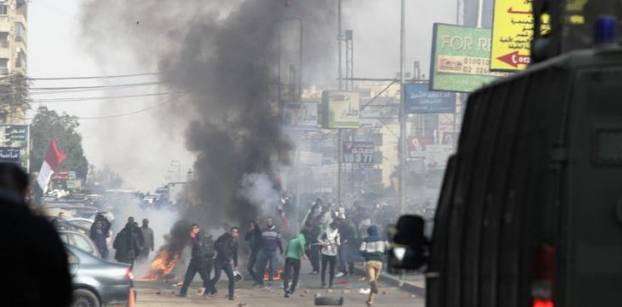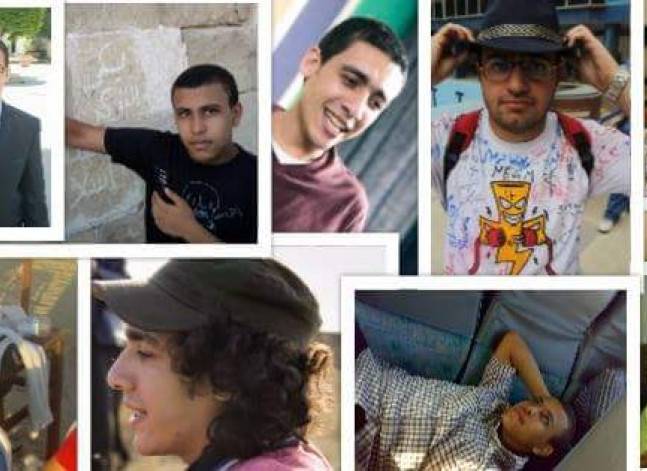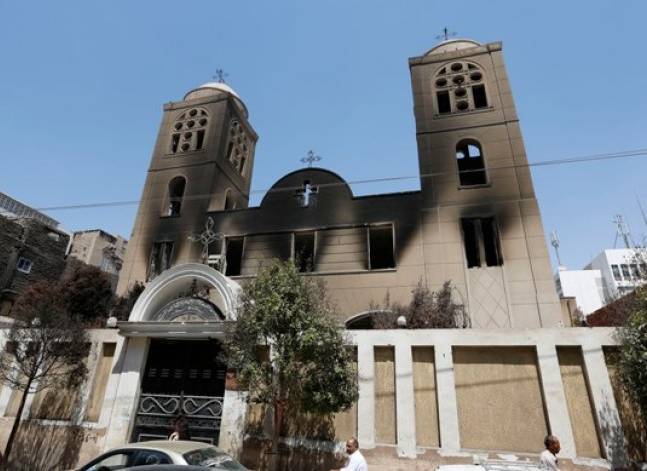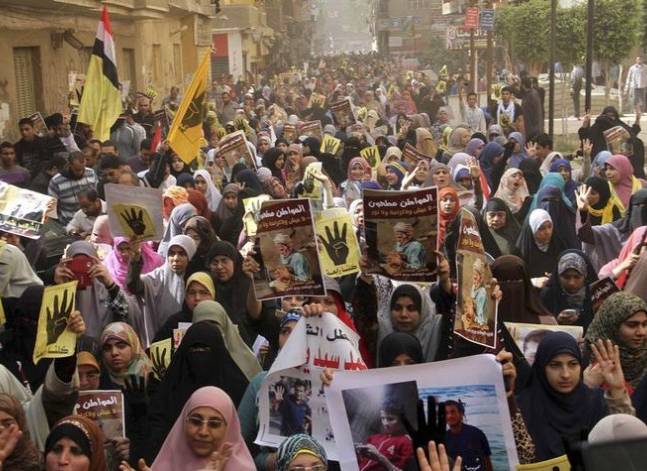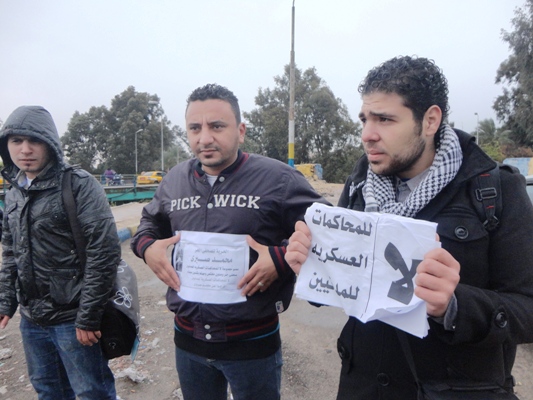Latest NEWS
- Aswat Masriya, the last word
- Roundup of Egypt's press headlines on March 15, 2017
- Roundup of Egypt's press headlines on March 14, 2017
- Former Egyptian President Hosni Mubarak to be released: lawyer
- Roundup of Egypt's press headlines on March 13, 2017
- Egypt's capital set to grow by half a million in 2017
- Egypt's wheat reserves to double with start of harvest -supply min
- Roundup of Egypt's press headlines on March 12, 2017
Egypt military court sentences 187 to life amid rise in referrals
CAIRO, June 2 (Aswat Masriya) – An Egyptian military court sentenced on Thursday 187 alleged Muslim Brotherhood members and supporters to life in prison over storming a police station in Minya and blocking the railroad after the dispersal of the Rabaa al-Adaweya and Nahda sit-ins in 2013.
Defence lawyer Khaled al-Komi said that three defendants were present when the court issued its verdict today.
The prosecution had referred the defendants to military trial in March 2015. The charges include belonging to the banned Muslim Brotherhood group, inciting violence, causing riots, attacking public facilities, disrupting traffic and blocking roads.
The events occurred after the dispersal of Rabaa al-Adaweya sit-in in August 2013. The encampment was in support of elected Muslim Brotherhood President Mohamed Mursi who was ousted by the military in July 2013 following mass protests against his rule.
Human Rights Watch said in a report, issued one year after the dispersal, that security forces "killed a minimum of 817 people and more likely at least 1,000." The state's National Council for Human Rights, however, said in March 2014 that the death toll was 632, including eight security personnel.
Egypt listed the Brotherhood as a terrorist organisation in December 2013.
The state insists the Brotherhood is behind the violent wave of militancy which has targeted security personnel since mid-2013. The Brotherhood continuously denies the accusations.
In 2014, President Abdel Fattah al-Sisi issued a decree expanding the jurisdiction of military judiciary to try civilians accused of attacking "vital" state facilities or attacking military personnel on duty.
Lawyer Ahmed Helmy told Aswat Masriya that immediately after the issuance of the law, there weren't that many referrals to military courts. Recently, however, there has been a noticeable increase in referrals, adding that not all of the referrals are "suitable" for a military trial.
"Among the hardships we face in military trials is the treatment that we are subjected to due to the tough circumstances of the military camps," Helmy said, "As well as the fact that the military judge is not impartial and the laws are not thoroughly applied or respected."
On Sunday, an Egyptian military court ordered the execution of eight alleged Muslim Brotherhood supporters who are convicted of establishing a group against the law and involvement in the assassination of a number of security personnel. The court also sentenced 12 to life in prison and six others to 15 years. Only two were acquitted in this case.
According to the military judiciary code, the verdict can be challenged before the military appeals court.
"The thing with the military appeals court is that it is never guaranteed to have an approval, unlike the regular appeals court which goes by well-known rules and principles," Helmy commented.
In May 2015, six men accused in the famous "Arab Sharkas" case were executed.
They were convicted by a military court of participating in attacks on security forces and killing two armed forces officers in 2014. They were also accused of belonging to the Sinai Province, previously known as Ansar Bayt al-Maqdis.
The Islamic State-affiliate Sinai Province has claimed responsibility for many of the attacks against army and police forces in Egypt following Mursi's ouster.
As the defence lawyer of the defendants in the "Arab Sharkas" case, Helmy says that there is currently a habit of rushing the implementation of executions.

